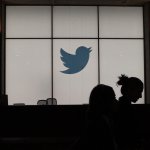Twitter: U OK HUN?

Twitter has always been a rich gumbo of facts, fans, famous people, and hardcore political nonsense – perhaps never more so that during the years when Donald Trump was running for, and then tweeting from the office of, the President of the United States.
But since the long-dangled takeover of the platform by Elon Musk, his signature combination of futurist techno-wunderkind and world-conquering ego has made the platform – and the company – seem less stable than a Trump tweetathon, with every day bringing some new innovative catastrophe to the platform. Mel Brooks fans have likened it to his famous play and movie, The Producers, where two clever but not entirely scrupulous men set out to make a musical so poor it tanks after just one night on purpose.
The everything app
Musk’s behavior since coming to power at Twitter has felt distinctly as though he might just be trying to sink one of the most successful social media platforms in the world (and with it, his $44bn investment). But maybe that’s his way of beginning to rebuild it in the form of the “everything app” he’s previously spoken about, a Western version of the runaway Chinese success, WeChat. Is the first step to strip the company down to its techno-underwear through Chapter 11 bankruptcy?
To date, he’s fired half the company’s workforce the week after his arrival, including the head of cybersecurity and the communications team. (Ironically, therefore, there’s no-one but Musk for journalists to ask whether the head of cybersecurity has been replaced.) Then there’s the already-notorious Twitter Blue scheme of selling the blue ‘authentication tick’ to anyone prepared to stump up $8 for it, thus making an instant mockery of the authentication process. It feels like corporate governance by whim, and if Musk is hoping to make a commercial success of Twitter as it stands, he’s gone a deeply unlikely way about it.
#RIPTwitter?
As users moved away from the platform in droves (with around a million deserting Twitter for the distributed network, Mastodon), many forecast the imminent death of the platform. Certainly the time feels right, following the surprise bankruptcy of the FTX crypto-exchange just last week, which itself went from a multi-billion dollar business to Chapter 11 indignity in the blink of an eye.
Musk has been either disarmingly or alarmingly honest about the effect his takeover has had on Twitter’s never especially rosy finances, depending on your point of view. He added $13bn dollars of debt on top of its existing financial problems, and he’s since stated that Twitter is currently losing around $4m per day.
He claims that’s down to civil rights campaigners influencing advertisers to abandon the platform and take their cash with them. The advertisers themselves have largely put the reasons for their exodus down to Musk himself, choosing from an extensive menu that lists his hands-on management style (and its effects), his daily innovation of under-thought ways to make Twitter profitable, his conspiracy theories, and his version of free speech rules.
The latest implementation of those free speech guidelines includes the reinstatement of the accounts of all manner of climate change skeptics, gropers of women, bleach-cures-Covid advocates, insurrectionist instigators and, coincidentally, that of ex-POTUS, Donald J Trump.
Return – or not – of the showman
In addition to those staff who were fired (almost over the weekend after Musk’s takeover), the company has seen record numbers of staff hand in their notice and walk. That exodus came after he doubled down on his previous diktats that Twitter staff should stop their preferred remote and hybrid working and attend in-office workdays. He also announced that anyone who wanted to remain with Twitter should expect to work “long hours at high intensity.” Those who didn’t want to do that, he said, should leave.
With the current job market crying out for tech workers, many of the platform’s staff decided that they could leave. And so they did. In droves.
Then came a now-familiar Musk back-pedal on the return-to-office policy, as he announced that staff would be allowed to work remotely “so long as their managers asserted that they were making an excellent contribution.” The doors of Twitter’s office buildings were subsequently locked and badge access for all employees disabled “until Monday.”
Either Elon Musk is genuinely is less balanced than we’d like to think our business leaders should be, or he’s deliberately steering Twitter chaotically to destabilize the platform with the view to creating a super-app, the infuriatingly-named “X.” Even if those are his long-term plans, a solid, sane and well-executed process would surely have him arrive at his desired destination with less fallout?
To date, what staff there are left have been locked out of HQ, the platform has a million fewer users, advertisers are fleeing, many of the coders who actually make the platform work have left, and Musk’s attempts to play hardball appear to have failed spectacularly. Twitter, which was never a Wall Street poster boy, is hemorrhaging cash at an unsustainable rate, plus much of the Twitter purchase was paid for in Tesla stock, which itself has been tanking. Overall, we could be on the brink of one of the biggest tech business upsets since… last week’s FTX news.










